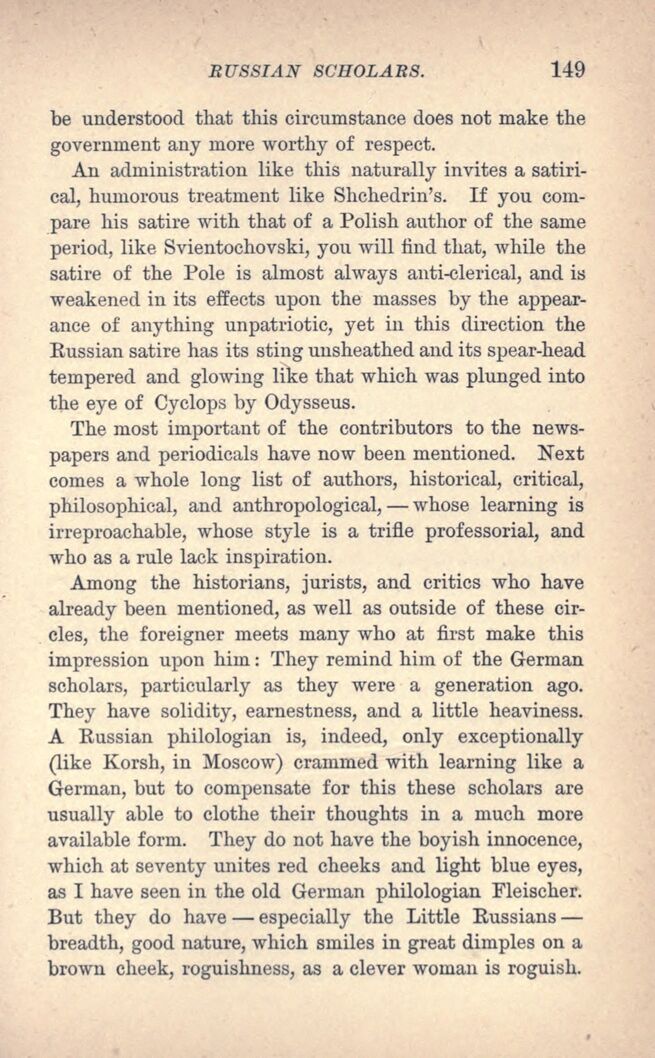
Full resolution (JPEG) - On this page / på denna sida - VIII

<< prev. page << föreg. sida << >> nästa sida >> next page >>
Below is the raw OCR text
from the above scanned image.
Do you see an error? Proofread the page now!
Här nedan syns maskintolkade texten från faksimilbilden ovan.
Ser du något fel? Korrekturläs sidan nu!
This page has been proofread at least once.
(diff)
(history)
Denna sida har korrekturlästs minst en gång.
(skillnad)
(historik)
be understood that this circumstance does not make the
government any more worthy of respect.
An administration like this naturally invites a
satirical, humorous treatment like Shchedrin’s. If you
compare his satire with that of a Polish author of the same
period, like Svientochovski, you will find that, while the
satire of the Pole is almost always anti-clerical, and is
weakened in its effects upon the masses by the appearance
of anything unpatriotic, yet in this direction the
Russian satire has its sting unsheathed and its spear-head
tempered and glowing like that which was plunged into
the eye of Cyclops by Odysseus.
The most important of the contributors to the newspapers
and periodicals have now been mentioned. Next
comes a whole long list of authors, historical, critical,
philosophical, and anthropological, — whose learning is
irreproachable, whose style is a trifle professorial, and
who as a rule lack inspiration.
Among the historians, jurists, and critics who have
already been mentioned, as well as outside of these
circles, the foreigner meets many who at first make this
impression upon him: They remind him of the German
scholars, particularly as they were a generation ago.
They have solidity, earnestness, and a little heaviness.
A Russian philologian is, indeed, only exceptionally
(like Korsh, in Moscow) crammed with learning like a
German, but to compensate for this these scholars are
usually able to clothe their thoughts in a much more
available form. They do not have the boyish innocence,
which at seventy unites red cheeks and light blue eyes,
as I have seen in the old German philologian Fleischer.
But they do have — especially the Little Russians —
breadth, good nature, which smiles in great dimples on a
brown cheek, roguishness, as a clever woman is roguish.
<< prev. page << föreg. sida << >> nästa sida >> next page >>